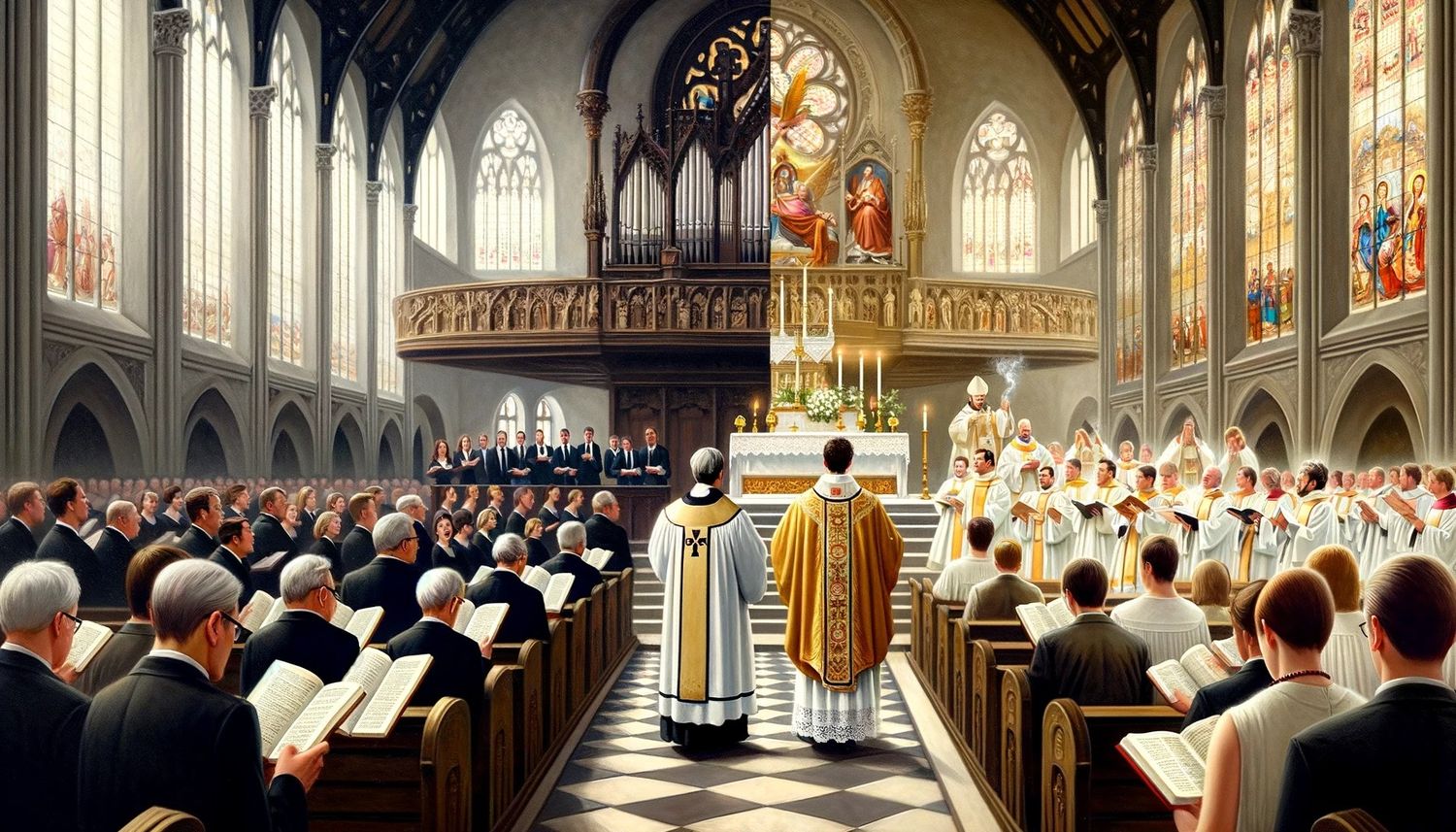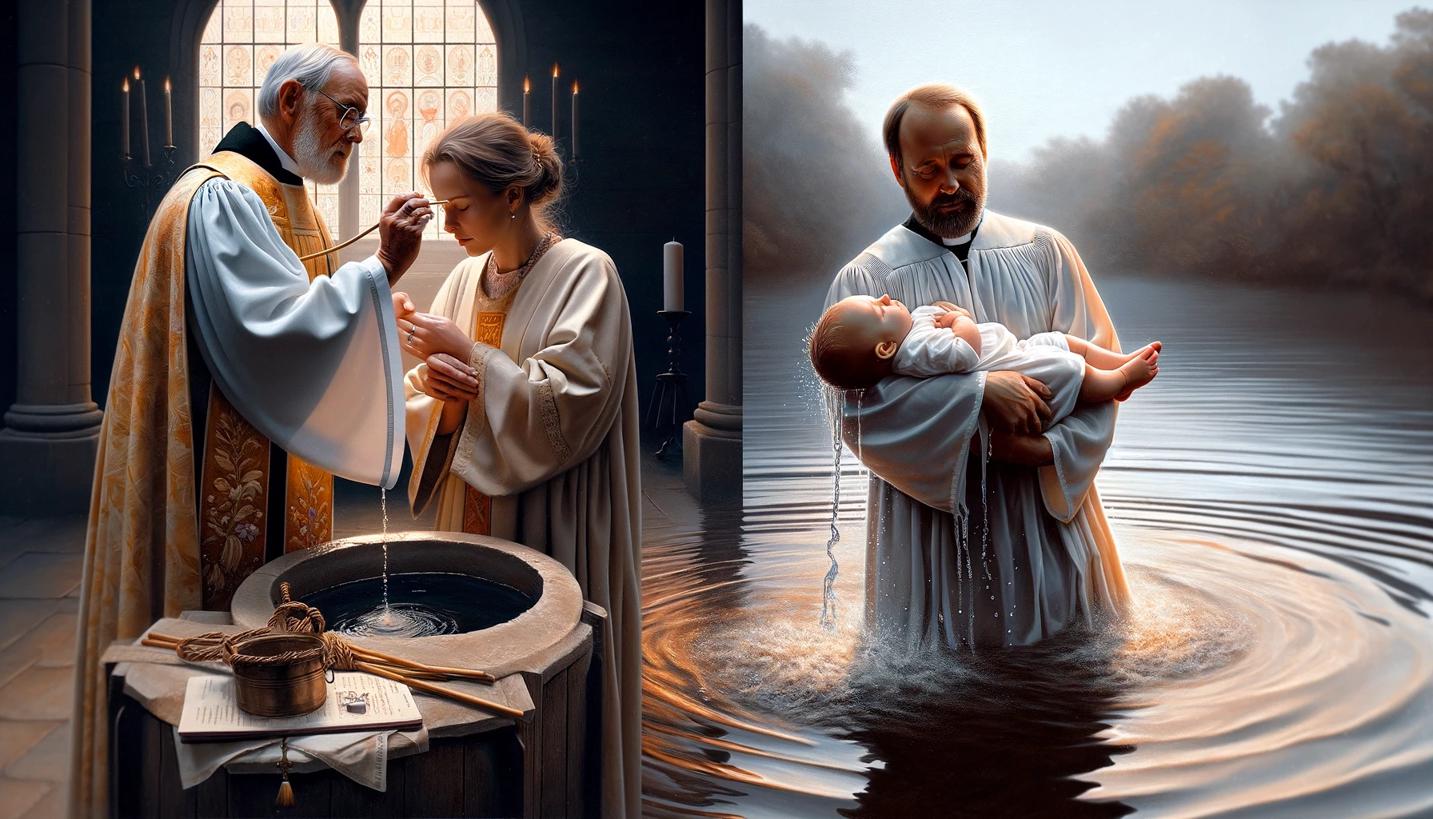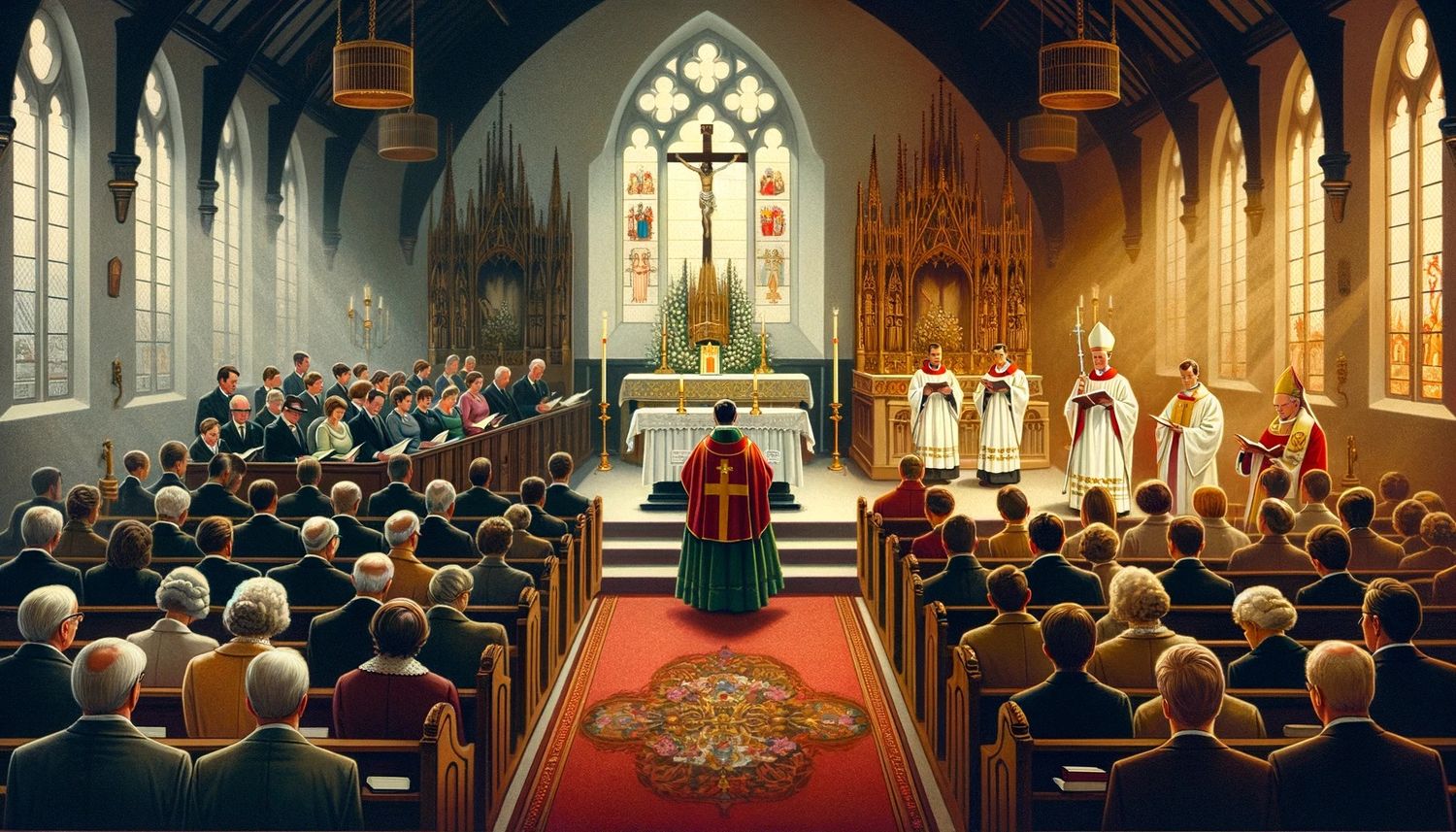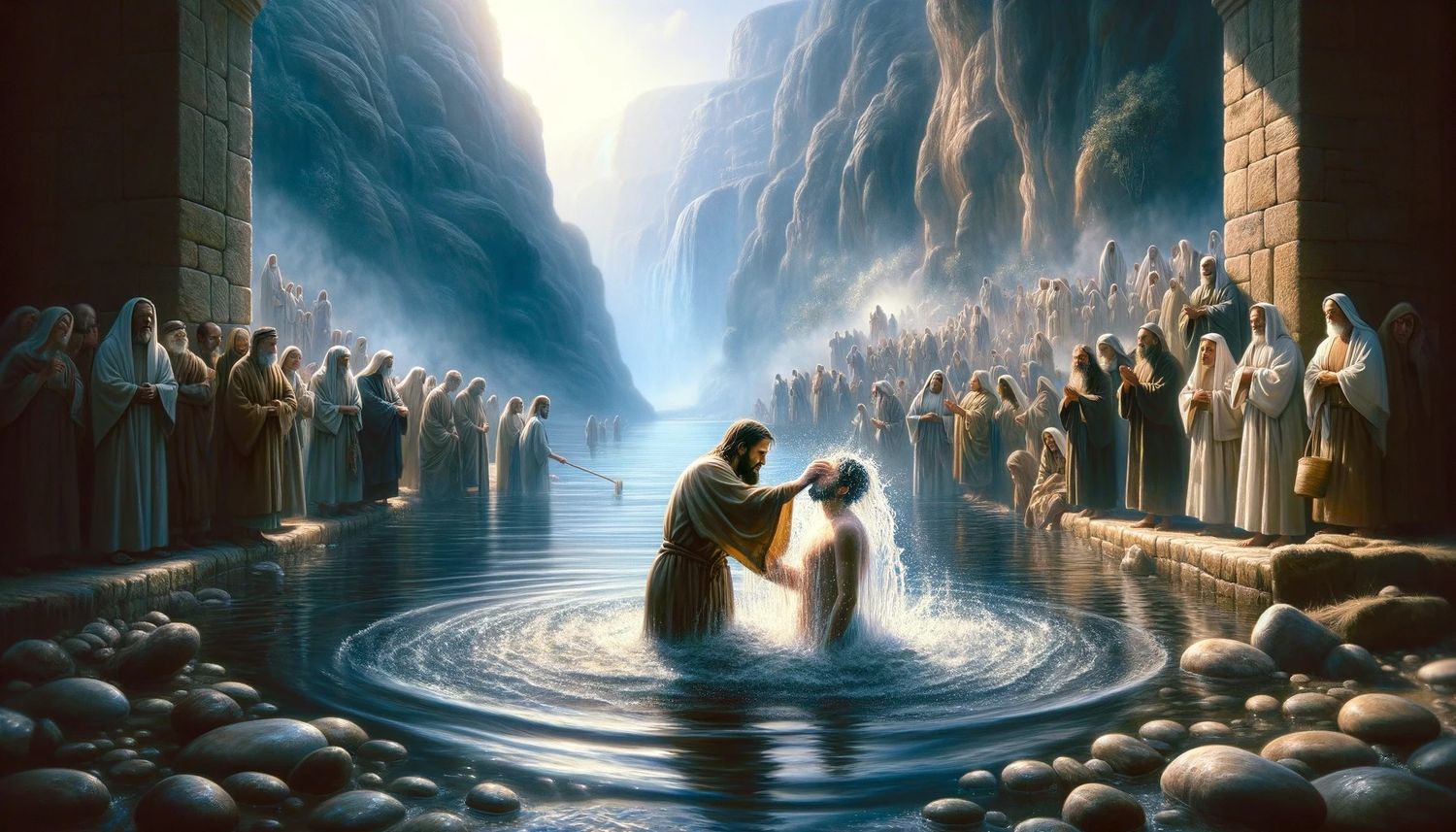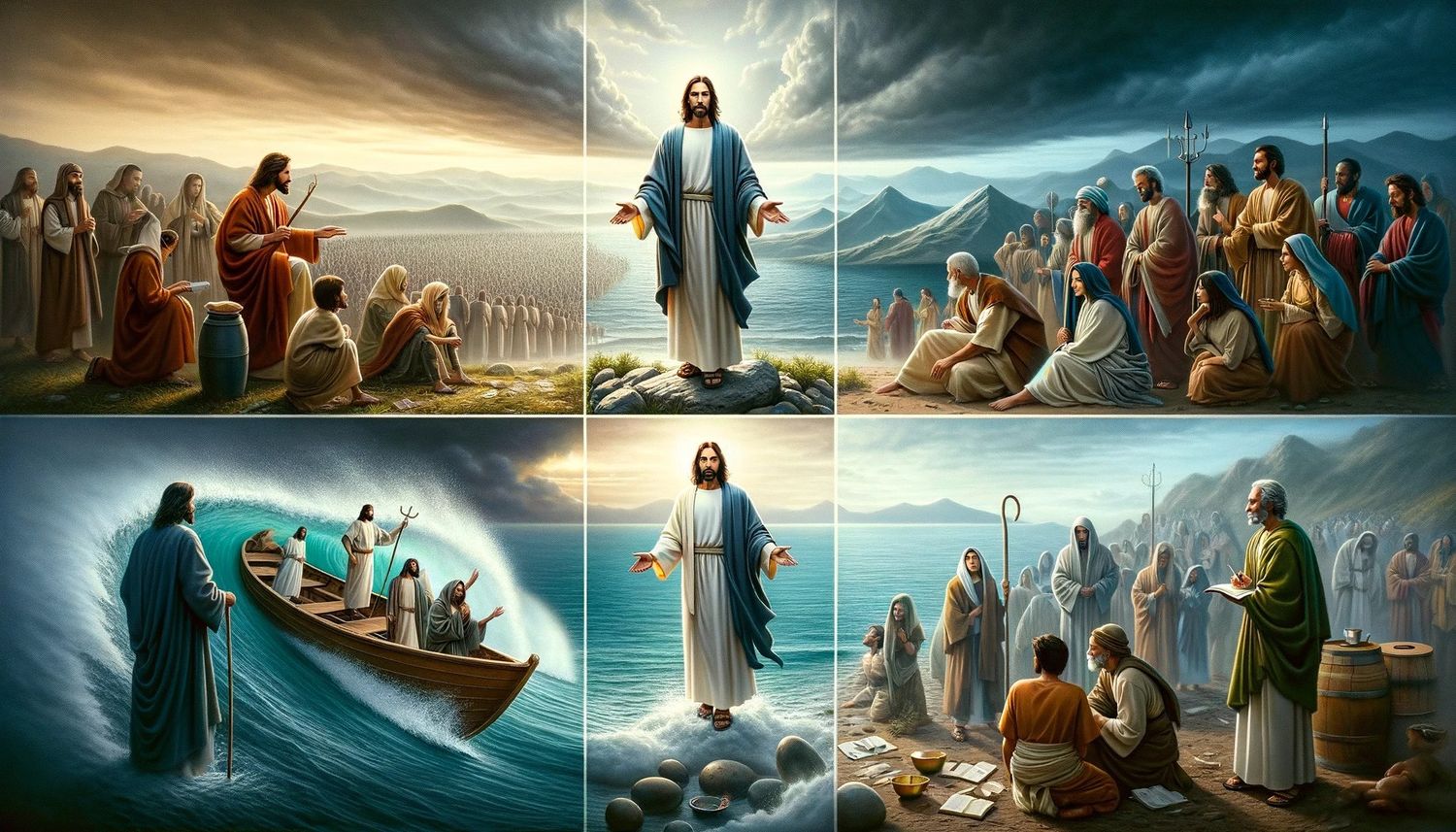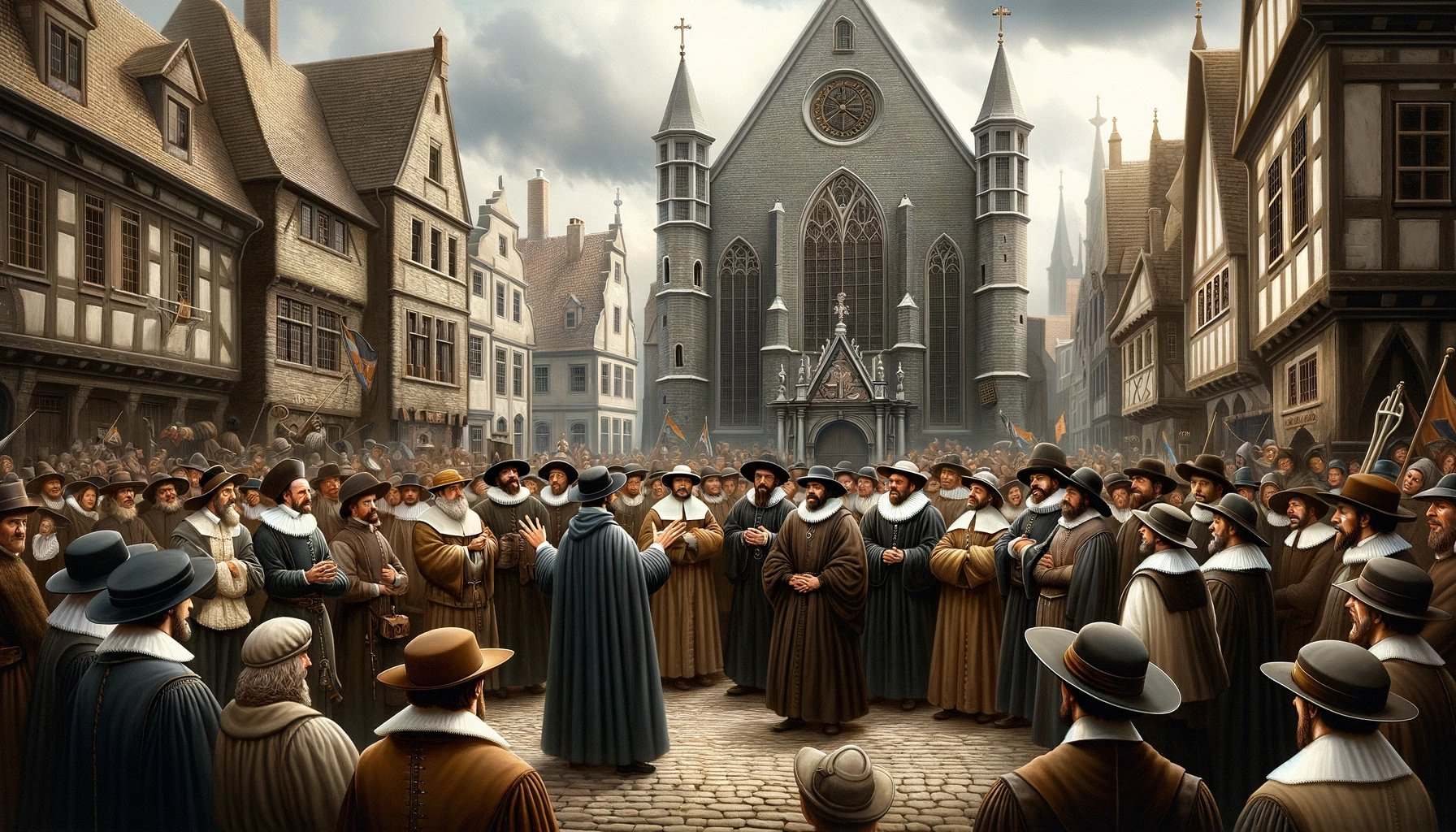Home>Theology and Spirituality>How Does Catholic Differ From Baptist


Theology and Spirituality
How Does Catholic Differ From Baptist
Published: February 20, 2024
Ericka Andersen, an editor at Christian.net, expertly merges digital strategy with content creation, focusing on faith and societal issues. Her communication skills enhance the platform's engaging narratives, fostering meaningful dialogue on belief's impact on society.
Discover the key differences in theology and spirituality between Catholicism and Baptist beliefs. Explore their distinct doctrines and practices.
(Many of the links in this article redirect to a specific reviewed product. Your purchase of these products through affiliate links helps to generate commission for Christian.net, at no extra cost. Learn more)
Table of Contents
Introduction
When exploring the rich tapestry of Christian faith, one encounters a diverse array of denominations, each with its own distinct traditions, beliefs, and practices. Two prominent denominations within the Christian tradition are Catholicism and Baptism. While both share a foundation in the teachings of Jesus Christ, they diverge in significant ways, encompassing theological doctrines, worship practices, and ecclesiastical structures.
Understanding the differences between Catholicism and Baptism is essential for appreciating the nuances of Christian faith and the varied expressions of devotion to God. By delving into their respective beliefs, worship styles, and theological perspectives, one can gain a deeper insight into the multifaceted nature of Christianity and the diverse paths through which individuals seek spiritual fulfillment.
In this comprehensive exploration, we will embark on a journey to unravel the distinctions between Catholicism and Baptism, shedding light on their unique theological tenets, worship customs, and approaches to spiritual salvation. By examining these fundamental aspects, we aim to foster a greater understanding of the rich tapestry of Christian traditions and the diverse ways in which individuals connect with their faith.
Beliefs and Doctrines
Catholicism
- Sacred Tradition: Catholicism upholds the significance of sacred tradition alongside the Holy Scriptures, viewing both as integral sources of divine revelation. The teachings of the early Church fathers and the decisions of ecumenical councils are revered as essential components of this tradition.
- Papal Infallibility: Catholics believe in the infallibility of the Pope when speaking ex cathedra on matters of faith and morals. This doctrine underscores the Pope's role as the supreme authority within the Church.
- Transubstantiation: Central to Catholic doctrine is the belief in transubstantiation, wherein the Eucharistic elements of bread and wine are transformed into the actual body and blood of Christ during the Mass.
- Intercession of Saints: Catholics venerate saints and seek their intercession, believing that the saints can pray on behalf of individuals and act as mediators between humanity and God.
Baptism
- Sola Scriptura: Baptists adhere to the principle of sola scriptura, emphasizing the sole authority of the Bible in matters of faith and practice. They prioritize the Scriptures as the ultimate source of divine revelation and guidance.
- Believer's Baptism: Unlike infant baptism practiced in Catholicism, Baptists advocate for believer's baptism, wherein individuals make a conscious decision to be baptized upon professing their faith in Jesus Christ.
- Congregational Autonomy: Baptists uphold the autonomy of individual congregations, rejecting hierarchical structures and emphasizing the independence of local churches in matters of governance and doctrine.
- Symbolic Eucharist: Baptists view the Lord's Supper as a symbolic act commemorating the sacrificial death of Jesus Christ, rejecting the Catholic doctrine of transubstantiation and emphasizing the symbolic nature of the Eucharistic elements.
In essence, while both Catholicism and Baptism are rooted in the Christian faith, they diverge in their beliefs and doctrines, reflecting distinct theological emphases and interpretations of sacred tradition and scripture. These differences contribute to the rich tapestry of Christian denominations, each offering a unique lens through which individuals perceive and engage with their spiritual journey.
Worship and Practices
Catholicism
-
Liturgy and Sacraments: Central to Catholic worship is the celebration of the Eucharist, known as the Mass. The liturgical tradition of the Catholic Church is characterized by its rich symbolism, formal rituals, and the sacramental life. The seven sacraments, including Baptism, Confirmation, and the Anointing of the Sick, play a vital role in the spiritual journey of Catholics, marking significant milestones in their faith.
-
Veneration of Mary and the Saints: Catholic worship often incorporates the veneration of Mary, the mother of Jesus, and various saints. Devotional practices such as the Rosary and the veneration of sacred relics are integral to Catholic spirituality, reflecting a deep reverence for the intercessory role of Mary and the saints in the lives of believers.
-
Liturgical Calendar: The liturgical year, punctuated by seasons such as Advent, Lent, and Easter, shapes the rhythm of Catholic worship. Each season carries its own distinct observances, feasts, and devotional practices, providing a cyclical framework for spiritual reflection and communal worship.
Baptism
-
Emphasis on Preaching and Music: Baptist worship services often center around dynamic preaching and congregational singing. The proclamation of the Gospel and the expressive singing of hymns and spiritual songs form the core of Baptist worship, fostering a sense of communal praise and spiritual edification.
-
Believer's Baptism: The act of believer's baptism holds profound significance in Baptist tradition. Immersion baptism, symbolizing the believer's identification with the death and resurrection of Jesus Christ, is a central rite in Baptist worship, often accompanied by joyful celebrations and testimonies of faith.
-
Congregational Participation: Baptists prioritize active congregational participation in worship, encouraging the involvement of members in prayer, scripture reading, and testimonies. This emphasis on the priesthood of all believers underscores the communal nature of Baptist worship, fostering a sense of shared responsibility and spiritual engagement.
In essence, the worship and practices of Catholicism and Baptism reflect their distinctive theological emphases and cultural expressions. While Catholic worship is characterized by its sacramental richness, liturgical solemnity, and veneration of saints, Baptist worship emphasizes dynamic preaching, congregational participation, and the symbolic significance of believer's baptism. These diverse worship traditions contribute to the vibrant tapestry of Christian worship, offering unique avenues for spiritual expression and communal devotion.
Leadership and Structure
Catholicism
In the hierarchical structure of Catholicism, the Pope serves as the supreme spiritual leader, regarded as the Vicar of Christ and the successor of St. Peter. The Pope's authority extends over the entire Catholic Church, encompassing matters of doctrine, governance, and spiritual guidance. Beneath the Pope, the College of Cardinals, bishops, priests, and deacons form a structured hierarchy, with each level bearing specific responsibilities and pastoral duties. The concept of apostolic succession, tracing the lineage of bishops back to the apostles, underpins the ecclesiastical authority within Catholicism, emphasizing the continuity of leadership and the transmission of spiritual authority across generations.
Baptism
In contrast to the centralized hierarchy of Catholicism, Baptism embraces a congregational polity, emphasizing the autonomy of individual churches and the priesthood of all believers. Each Baptist congregation operates independently, with its own governance structure and decision-making processes. The role of the pastor holds significant importance in Baptist churches, serving as a spiritual leader, preacher, and shepherd to the congregation. While Baptist associations and conventions exist for cooperative endeavors and mutual support, the overarching structure of Baptism reflects a decentralized approach, affirming the authority of local congregations in matters of governance and spiritual leadership.
Comparison
The contrasting leadership and structural frameworks of Catholicism and Baptism underscore divergent approaches to ecclesiastical governance and spiritual authority. Catholicism's centralized hierarchy, with the Pope at its apex, embodies a top-down model of leadership, emphasizing the role of the magisterium in interpreting and safeguarding the deposit of faith. In contrast, Baptism's congregational autonomy and emphasis on the priesthood of all believers reflect a bottom-up approach, prioritizing the authority and participation of the local church community in decision-making and spiritual discernment.
In essence, the leadership and structure of Catholicism and Baptism exemplify distinct paradigms of ecclesiastical governance, each reflecting nuanced theological convictions and historical developments within the Christian tradition. These differing models of leadership contribute to the diverse tapestry of Christian denominations, embodying varied expressions of spiritual authority and communal organization within the body of believers.
Sacraments and Ordinances
Sacraments and ordinances hold profound significance within the theological frameworks of Catholicism and Baptism, serving as pivotal rites that symbolize and impart spiritual grace to believers. While both traditions recognize the importance of these sacred rituals, they diverge in their understanding of the specific sacraments or ordinances and their theological implications.
Catholicism
Central to Catholic doctrine are the seven sacraments: Baptism, Confirmation, Eucharist, Reconciliation, Anointing of the Sick, Holy Orders, and Matrimony. Each sacrament is viewed as a visible sign of God's invisible grace, conveying spiritual blessings and fostering the believer's union with Christ and the Church. The sacraments are administered by ordained clergy and are considered essential channels through which believers receive God's sanctifying grace.
The Eucharist, or Holy Communion, holds a central place in Catholic sacramental theology. Through the doctrine of transubstantiation, Catholics believe that the consecrated bread and wine become the actual body and blood of Christ, a profound mystery that encapsulates the real presence of Christ in the Eucharistic elements. The Eucharist is celebrated within the context of the Mass, signifying the sacrificial offering of Christ and the spiritual nourishment of the faithful.
Baptism
In the Baptist tradition, two ordinances hold prominence: Baptism and the Lord's Supper. Baptism, symbolizing the believer's identification with the death, burial, and resurrection of Jesus Christ, is administered to individuals upon their profession of faith. Unlike infant baptism in Catholicism, Baptists practice believer's baptism, emphasizing the conscious decision of the individual to publicly declare their faith and undergo immersion baptism.
The Lord's Supper, also known as communion, is observed as a symbolic act commemorating the sacrificial death of Jesus Christ. Baptists view the Lord's Supper as a memorial of Christ's redemptive work, emphasizing the symbolic nature of the bread and wine as representations of Christ's body and blood. The act of partaking in the Lord's Supper serves as a communal remembrance of Christ's sacrifice and a reaffirmation of the believer's faith in the atoning work of Christ.
Comparison
The divergent perspectives on sacraments and ordinances in Catholicism and Baptism reflect varying theological emphases and interpretations of sacred rituals. While Catholic sacramental theology emphasizes the efficacy of the sacraments as instrumental means of grace, Baptists prioritize the symbolic nature of ordinances, viewing them as acts of obedience and commemoration rather than conveyors of salvific grace.
In essence, the distinct approaches to sacraments and ordinances in Catholicism and Baptism underscore the multifaceted nature of Christian ritual practices, each embodying unique theological convictions and spiritual significance within their respective traditions. These sacred rites serve as tangible expressions of faith and communal identity, enriching the spiritual journey of believers within the diverse tapestry of Christian denominations.
Views on Salvation
Catholicism and Baptism, while sharing a foundational belief in the redemptive work of Jesus Christ, diverge in their theological perspectives on salvation. These differing views on salvation shape the doctrinal frameworks and spiritual outlook of each tradition, reflecting nuanced interpretations of grace, faith, and the role of the Church in the salvation of believers.
Catholicism
Within Catholic theology, salvation is perceived as a multifaceted process encompassing both divine grace and human cooperation. The concept of "cooperating with grace" underscores the Catholic belief in the synergistic nature of salvation, wherein God's grace enables individuals to participate in their own redemption through acts of faith, repentance, and obedience to the teachings of the Church. The sacraments, particularly Baptism and the Eucharist, are regarded as instrumental means through which believers receive and cooperate with God's saving grace, fostering spiritual transformation and the remission of sin.
Central to Catholic soteriology is the notion of purgatory, a temporary state of purification for souls destined for heaven. Catholics believe that through the prayers of the faithful and the offering of Mass, the souls in purgatory can be aided in their journey towards the fullness of salvation, emphasizing the communal dimension of redemption and the interconnectedness of the mystical body of Christ.
Baptism
In contrast, Baptism espouses a soteriological framework rooted in the principles of sola fide (faith alone) and the assurance of salvation through a personal relationship with Jesus Christ. Baptists emphasize the primacy of faith in Christ's atoning work as the sole means of salvation, rejecting the notion of human cooperation in the attainment of redemption. The act of believer's baptism symbolizes the believer's identification with Christ's death and resurrection, signifying a public declaration of faith and a transformative union with the redemptive work of Christ.
Baptists uphold the doctrine of eternal security, also known as "once saved, always saved," affirming the assurance of salvation for those who have genuinely placed their faith in Christ. This theological conviction underscores the steadfastness of God's saving grace and the unshakable nature of the believer's relationship with God, providing a sense of confidence and hope in the certainty of eternal salvation.
Comparison
The contrasting views on salvation in Catholicism and Baptism reflect divergent theological emphases on the dynamics of grace, faith, and the role of the Church in the redemptive process. While Catholicism emphasizes the cooperative synergy between divine grace and human response, Baptism underscores the foundational significance of faith in Christ as the exclusive means of salvation and the assurance of eternal security for the redeemed.
In essence, the differing perspectives on salvation in Catholicism and Baptism exemplify the rich diversity of soteriological thought within the Christian tradition, each offering distinct insights into the transformative power of God's grace and the profound implications of redemption for the lives of believers. These theological nuances contribute to the multifaceted tapestry of Christian beliefs, enriching the spiritual landscape of the global Christian community.
Conclusion
In conclusion, the exploration of the differences between Catholicism and Baptism unveils the rich tapestry of Christian faith, encompassing diverse theological doctrines, worship practices, and perspectives on salvation. The distinct beliefs and practices of these two traditions reflect the multifaceted nature of Christianity, offering unique pathways for individuals to engage with their spiritual journey and connect with the divine.
From the veneration of saints and the sacramental richness of Catholicism to the emphasis on believer's baptism and congregational autonomy in Baptism, each tradition embodies a distinct expression of Christian devotion and theological conviction. The contrasting views on salvation, ecclesiastical leadership, and the significance of sacraments or ordinances underscore the diverse theological landscapes within the Christian faith, enriching the global tapestry of Christian denominations.
While these differences delineate the boundaries between Catholicism and Baptism, they also serve as a testament to the breadth of Christian thought and the myriad ways in which individuals seek to encounter the divine. The theological diversity within Christianity fosters a spirit of dialogue, mutual understanding, and appreciation for the rich heritage of Christian traditions, transcending denominational boundaries and nurturing a sense of unity amidst diversity.
Ultimately, the exploration of the distinctions between Catholicism and Baptism invites individuals to embrace the complexity and richness of Christian faith, recognizing the beauty in the varied expressions of devotion, theological reflection, and communal worship. By honoring the unique contributions of each tradition, we affirm the vibrant tapestry of Christian belief and practice, celebrating the enduring legacy of the Christian faith across diverse cultures and historical contexts. In this spirit of appreciation and understanding, we continue to journey together, united by our shared devotion to the teachings of Jesus Christ and the timeless message of love, grace, and redemption that unites us as one global Christian family.


